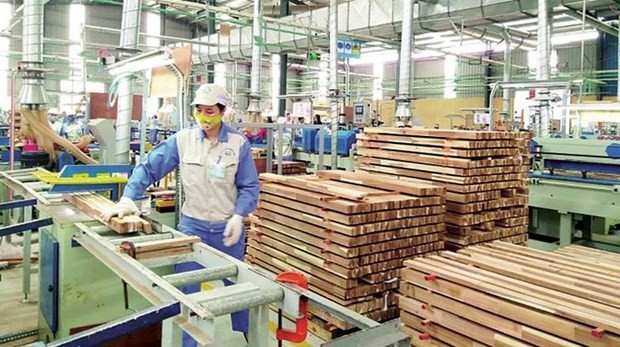 |
Illustrative image (Photo: VNA) |
Gia Lai is now home to nearly 300 wood production and processing facilities, mostly small-scale operations that engage in timber logging and processing to supply raw materials and wood chips to processors and exporters outside the province. With a forested area of over 150,000ha and approximately 90,000ha of rubber plantations, the province is considered a significant source of raw materials for wood producers and processors.
The province is working to create a legal framework to ensure the legality of Vietnamese timber exports to the European market under the Voluntary Partnership Agreement on Forest Law Enforcement, Governance, and Trade.
Notably, Gia Lai has also embarked on the Sustainable and Efficient Wood Processing Industry Development Plan for the 2021-2030 period. This plan targets limiting logging in natural forests, conducting large-scale timber business operations to protect the ecological environment, ensuring a sustainable supply of wood materials, and improving the efficiency of the forestry business.
The province has allocated local budget funds for activities supporting forest plantation, issuing forest certification according to regulations, and encouraging investment in agriculture and rural areas. Additionally, measures have been put in place to ensure that all timber products exported to the EU have legal and traceable origins, in line with commitments to sustainable forest management.
During 2021-2025, the plan is to plant forests on 40,000ha. Out of this, at least 10,000 ha will be dedicated to large-scale timber forests, and 15,000ha of small-scale timber forests will be transformed into large-scale ones.
By 2030, the income of forest workers is expected to increase by 2-3 times per area unit compared to 2020.
























